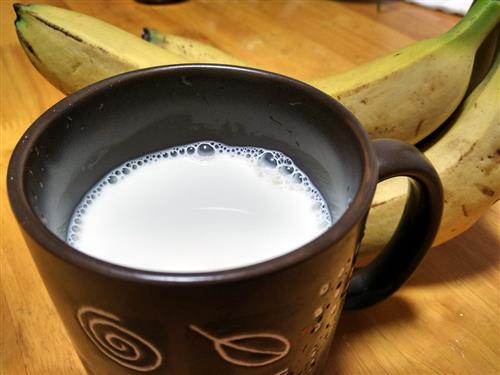Milk is rich in nutrients, and the benefits to the human body need not be said. But not everyone can enjoy the benefits of milk. Many people drink some milk and start to diarrhea. Why is this? The main reason is that they can't absorb lactose in milk well. This situation is more common in China and other Asian regions. Not allergic Many people have this saying: "I can't drink milk, I'm allergic to milk, and I diarrhea when I drink it." In fact, the vast majority of them are not allergic to milk, but do not absorb lactose in milk. It should be noted that the so-called "allergies" generally have pruritus, redness or asthma symptoms. When they drink milk or milk powder, they have bloating and diarrhea, called lactose intolerance. What is lactose? Lactose is a disaccharide widely found in mammalian milk. About 4.5 grams of lactose is contained in 100 ml of milk. Lactose can be absorbed only after it has been broken down into glucose and galactose by lactase in the human small intestine. In fact, we were able to decompose lactose at birth, but the content of this enzyme that later decomposed lactose began to gradually decrease, so that after growing up, it could not decompose lactose and cause lactose not to be absorbed. What is the problem of lactose intolerance? Lactose intolerance simply means that lactose can not be decomposed and absorbed in the small intestine, resulting in lactose entering the large intestine, leading to high osmotic pressure in the intestines, inability to absorb water, and thus diarrhea. The principle is somewhat similar to laxatives. People who have diarrhea, bloating, or discomfort in their stomachs because of drinking milk are generally missing a digestive enzyme called lactase. The milk that is ingested has a lot of lactose, and they do not have lactase. Lactose cannot be decomposed and absorbed, and large amounts of undigested lactose reach the large intestine. Some bacteria in the large intestine use lactose to ferment and produce a lot of gas, which can cause bloating, diarrhea, and fart and other symptoms. Lactose does not tolerate light bloating, and heavy drinkers do not have to drink the milk to run the toilet. Lactose intolerance varies from person to person The same cup of milk to drink, some people are all right, and some people have diarrhea, indicating that there is a large individual difference in lactose intolerance. Whether or not lactose intolerance occurs is largely determined by genes. If no decomposition of lactase occurs in the body, then he or she will have a "drinking milk diarrhea" situation. But it is not absolute. The improvement of lactose intolerance can be largely compensated for in the day after tomorrow. Some people who regularly drink milk will “awaken the sleeping lactase†and drink it to endure the milk. Modern medical research believes that humans produce lactase in the early years of life. If there is no or very little exposure to milk or lactose in the early stages, it is very likely that lactose intolerance occurs with age. Based on this, it is inferred that people who are easily bloated, diarrhea, and indigestible after drinking milk are less exposed to dairy products such as milk after weaning, resulting in “degeneration†of lactase. The habit of drinking milk in Europe and the United States is more common, and dairy products are basically exposed during early childhood, so European and American people are less likely to have lactose intolerance. How to do? Replace with lactose-free dairy products Milk itself is a good thing. If it is a pity to throw away milk because of intolerance, friends who drink milk diarrhea can choose some lactose-free dairy products instead of yogurt, cheese and so on. Yogurt is produced by fermenting milk after adding lactic acid bacteria. During the fermentation process, the lactose in raw milk is decomposed into lactic acid, proteins and fats are also decomposed into small components, and minerals that are beneficial to humans such as calcium, iron and zinc are also derived from large molecules. Disassociate and make it easier to digest and absorb. There are also products on the market that are specifically developed for people who are lactose intolerant. These milks remove the lactose and other ingredients remain the same as milk but do not cause diarrhea. Change the way you drink milk Changing the way you drink milk can also reduce the symptoms of lactose intolerance. For example, do not drink milk on an empty stomach, eat with other foods, etc. Lactose intolerance will have heavier symptoms when drinking on an empty stomach. It is due to the fact that the concentration of lactose in drinking milk is higher when fasting, but with some bread, cereals and other foods, the lactose concentration of milk can be “diluted†to reduce the high concentration of lactose. Intestinal irritation. Eating biscuits and bread before drinking milk or during feeding can relieve symptoms. In addition, if you drink milk powder, do not soak too thick, or it will easily lead to diarrhea. Author: First Affiliated Hospital of Zhongshan University in Guangzhou Gastrointestinal Surgery Yang Jie Rechargeable Hearing Aid Rechargeable Hearing Aid Shenzhen Sunshine Technology Co.,Ltd , https://www.szyatwin.com